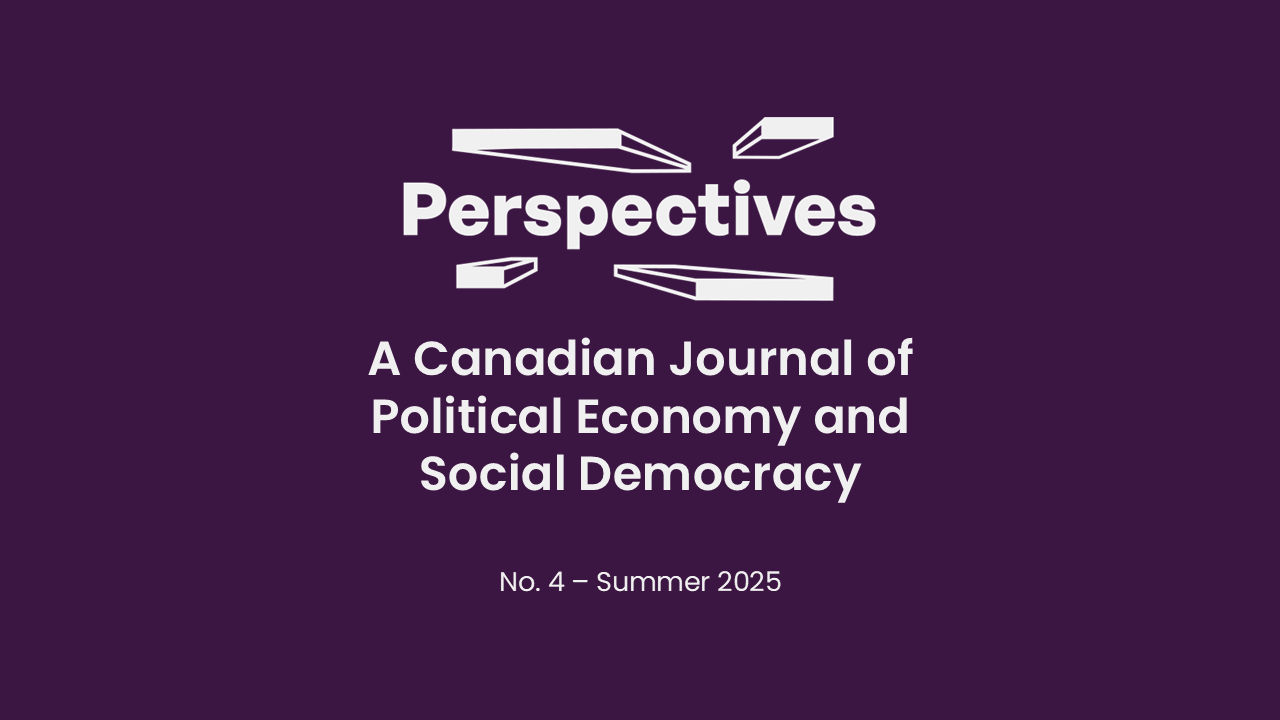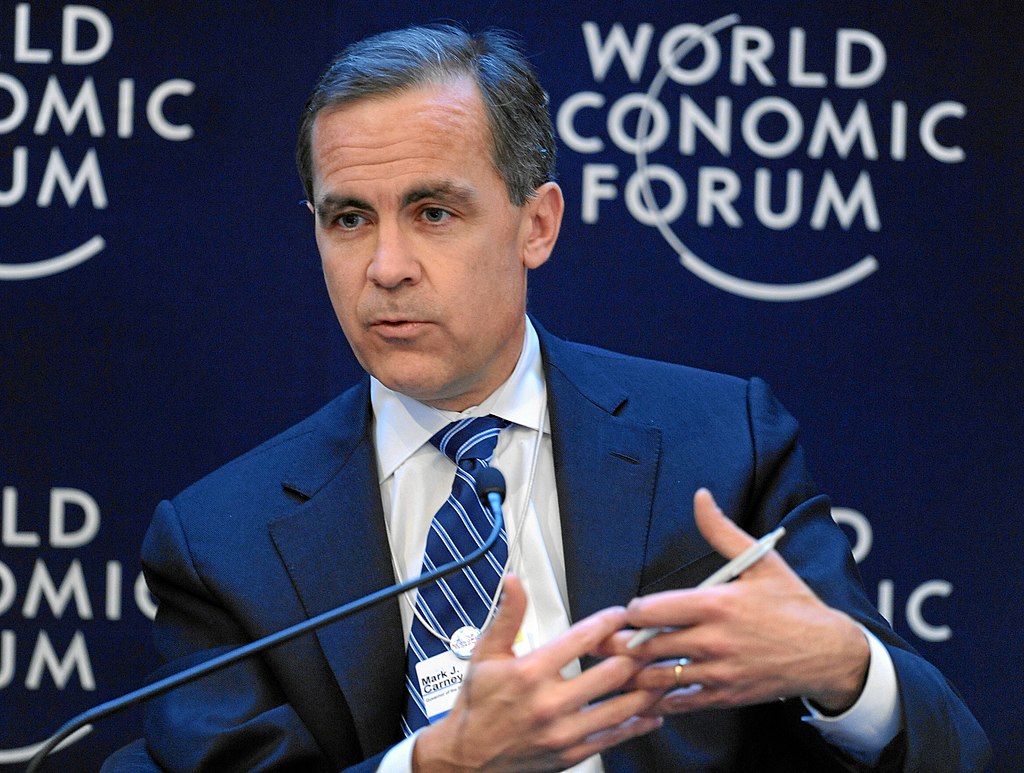- Carney and the Calgary School: or, Passive Revolution and Canada’s Social State in the Neoliberal Era – Mack Penner
- Back to the Future: Razing the Welfare State’s Third Pillar in the United States – Gregg Olsen
- From Stagnation to Inclusive Growth: How Income Inequality and Distributional Imbalances Stall Economic Growth in Canada – Simone Mao
- The Democratic Politics of Industrial Policy and Defining Canadian Abundance – Michael Leger
- The Temptations of Trite: How Policymakers Avoid Addressing Homelessness as a Structural Challenge – Abe Oudshoorn et al.
- Ballots Without Barriers: Empowering Unhoused Voters during the 2025 Ontario Election – Lily Brousseau, Aya Kadhem, Romanpreet Kaur & Mary Kyle Legado
- Genuine Democracy in an Age of Hyper-Individualism – Grace Blakeley
The 2025 Canadian federal election could be described as something of a “Monkey’s Paw” election; referring to the 1902 short story by W. W. Jacobs (my own original encounter with this parable is from The Simpsons, ‘Treehouse of Horror II’) wherein a decapitated, mummified primatial hand grants cursed wishes, because of the requester’s interference with fate. Each federal political party could be said to have made an election wish that came back cursed. For the Liberal Party of Canada, they may have wished to hold on to government and so won this Spring election but found themselves with a minority Parliament and now a right-ward movement of its governing agenda under the leadership of Prime Minister Mark Carney. For the Conservatives, they wished for more seats in this election, and won more seats in this election than even Stephen Harper’s 2006 and 2008 minority governments but still found themselves stuck as the official opposition and, at the time of writing, now without a leader in the House of Commons.
For the New Democratic Party, they may have wished to have continued to hold on to the balance of power, once formalized through the 2022 Parliamentary Confidence and Supply Agreement. While winning some government concessions in exchange for Parliamentary support in the previous session, the NDP by mid-election thought it could do so again despite a diminished seat count. The federal party appeared to have gotten what it wanted with the election outcome—holding on to enough seats that could give the Liberals the necessary votes to continue in exchange for more social democratic policy concessions. However, with this wish also being cursed, the NDP found itself without “party status” in the House of Commons, meaning the loss of legislative resources, and with the right-ward swing of the Liberals, have found the Carney government securing its Parliamentary majority with an agenda that aligns with the Conservative Party’s votes.
The federal New Democrats now find themselves with several existential questions – some that will be questioned and debated in a special edition of Perspectives Journal no. 5, to be published later this autumn 2025, co-edited by Professor Simon Black of Brock University. But before those debates take place, as the federal NDP leadership race gets underway, this issue of Perspectives Journal no. 4 takes stock of what the left can expect from the new Carney government.
Within the first six months of Carney’s Prime Ministership, Canadians have faced another summer of wildfires and smoke blanketing the country, whiplash from Trump’s erratic trade policies, and genocide in Gaza with the day that “everyone will have always been against this” seemingly arrived. Though still enjoying relative popularity to the Conservatives and NDP, Canadians are still waiting for answers to inflation, housing, and whether gains made on expanding healthcare will be kept. Carney’s Bill C-5 One Canadian Economy Act looks to speed up infrastructure projects deemed in the “national interest” while Indigenous Peoples worry about the respect to their rights. Meanwhile, the unemployment rate ticks upward, public service jobs are on the chopping block, and other recession indicators blink on dashboards; both proverbial and real.
Luke Savage, in an op-ed for the Toronto Star published on August 8th, puts it succinctly: “Carney in practice seems to quite simply be a banker: a technocrat unable or perhaps unwilling to look beyond the discredited market dogmas of the past forty years or envision any proactive role for the federal government in the economy beyond making life easier for large companies and the people who own them (be they Canadian or otherwise).” Perspectives Journal no. 4 looks at some of the philosophical and historical theses behind Carney’s early decision making, as well as the economic dogmas those decisions adhere to.
The ideas and political economy behind Carney’s governance are also reflected in the 2025 Ellen Meiksins Wood Lecture, delivered last May by UK economics writer Grace Blakeley, entitled “Genuine Democracy in an Age of Hyper-Individualism” illustrating how the neoliberal capitalist template adhered to by the new Prime Minister has come to overrule democracy. To inform the vision of any democratic socialist movement to oppose this regime of austerity, Blakeley argues that we must organize to take back democratic power for the working-class. This edition also brings nuanced attention to the democratic deficits behind Canada’s continued housing insecurity.
Mack Penner begins this interrogation of Carney’s approach to governance with a brief unravelling of the historical threads behind the so-called “Calgary School” of conservative intellectuals that informed much of Canada’s mainstream political thought and decision-making from the 1990s onward.
Professor Gregg Olsen evaluates the US Trump administration’s attacks on the “Third Pillar” foundation of the modern capitalist welfare state. Olsen’s contribution alludes to what this could mean for Canada’s welfare state with Carney moving in a softer, but similar direction on social program retrenchment. Carney’s right-ward appeals to conservatives makes Olsen’s piece poignant as they, “look enviously at how Elon Musk’s Department of Government Efficiency (DOGE) is slashing some government programs in the United States.”
Simone Mao provides an in-depth analysis of the “secular stagnation” identified by many Canadian economists over the last few years as a productivity issue. Rather than pointing to supply-side policy measures that policymakers like Mark Carney would advocate for, which have been proven ineffectual or blunted in their effects, structural demand-side transformations, such as income redistribution, are necessary to overcome this stagnation trap.
To complement, Michael Leger examines episodes of Canadian industrial policy and the democratic issues associated with its depoliticization over infrastructure projects of “national interest.” This is particularly valuable insight in the face of the US “Abundance” debate, which economist Isabella Weber has argued, “risks playing into the hands of DOGE-style deregulation,” in Foreign Policy last May.
Not to overlook the ongoing housing insecurity experienced all across Canada, corresponding author Professor Abe Oudshoorn and several contributors describe the methods and behaviours by which policymakers avoid addressing homelessness. When there is denial, there is no democratic accountability for the inadequacy of programs in the face of structurally induced homelessness.
Lastly, Brousseau, Kadhem, Kaur, and Legado of Wilfred Laurier University highlight policy research on empowering unhoused voters in the context of the 2025 Ontario General Election. Housing insecurity lends to a democratic deficit that enables further housing insecurity as those most affected by policymaking do not have a say in decisions. Their study looks at what can be done to better represent housing insecure citizens in Canadian electoral processes.
As this latest edition of the Perspectives Journal closes out summer 2025, the Canadian left should stand wary against the Carney government’s agenda, currently obscured by contrast with Pierre Poilievere’s Conservatives and the US Trump administration’s lash out against the world. Using this as cover for cuts, progressives need to hold fast against this regime still propped up by approval ratings that reflect the public sentiment that “things could be worse” as they become increasingly worse. To bring clarity amid this obscurity, perhaps Naomi Klein’s conversations with US progressives that volunteered for the Zohran Mamdani New York City Mayoral Democratic Primary campaign, presented at the 2025 Panamerican Congress in Mexico City, points to the clear vision Canadian progressives ought to see for their country: “We will make it better; we will make it fairer; we will make it more alive; and we will not let them burn it.”




